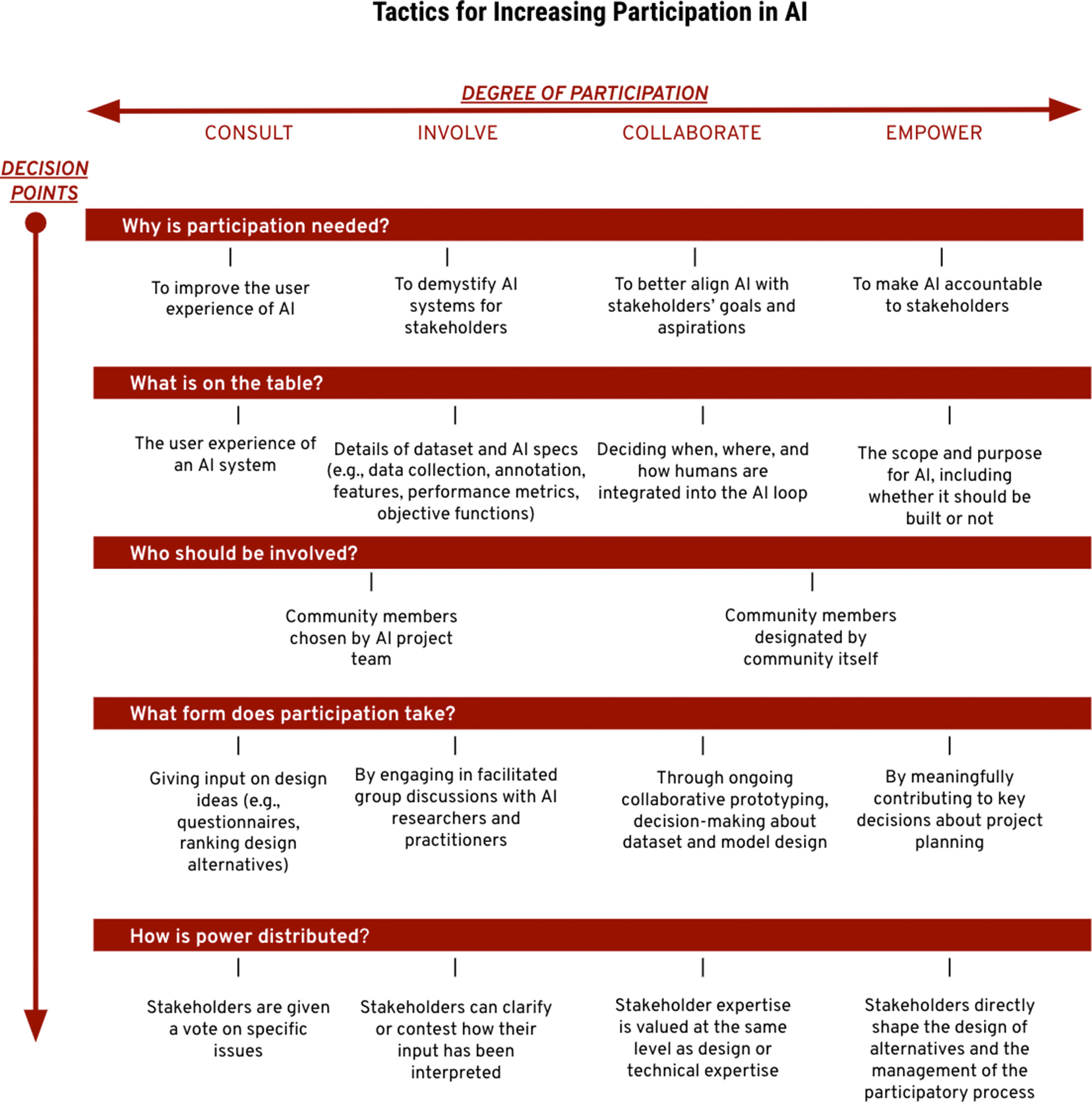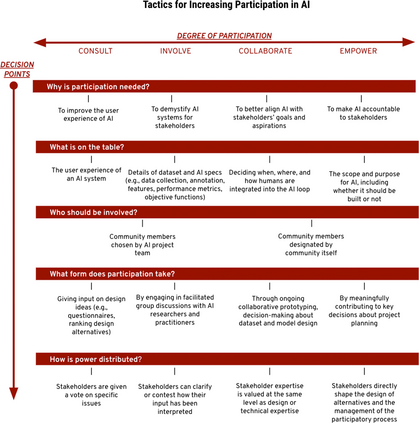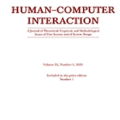There is a growing consensus in HCI and AI research that the design of AI systems needs to engage and empower stakeholders who will be affected by AI. However, the manner in which stakeholders should participate in AI design is unclear. This workshop paper aims to ground what we dub a 'participatory turn' in AI design by synthesizing existing literature on participation and through empirical analysis of its current practices via a survey of recent published research and a dozen semi-structured interviews with AI researchers and practitioners. Based on our literature synthesis and empirical research, this paper presents a conceptual framework for analyzing participatory approaches to AI design and articulates a set of empirical findings that in ensemble detail out the contemporary landscape of participatory practice in AI design. These findings can help bootstrap a more principled discussion on how PD of AI should move forward across AI, HCI, and other research communities.
翻译:人类活动倡议和大赦国际的研究日益形成共识,认为设计AI系统需要使受AI影响的利害关系方参与并增强他们的能力。然而,利益攸关方参与AI设计的方式尚不明确。本研讨会文件的目的是通过综合现有参与文献,并通过对最近发表的研究的调查和与大赦国际研究人员和从业人员的12次半结构性访谈,对其当前做法进行实证分析,从而在AI设计中确立我们所谓的“参与性转变”的基础。根据我们的文献综合和实证研究,本文件提出了一个概念框架,用以分析对AI设计采取的参与性方法,并阐述一套经验性结论,共同详细说明在AI设计中参与做法的当代格局。这些结论有助于就大赦国际、人类活动倡议和其他研究界如何推进PD进行更有原则的讨论。







